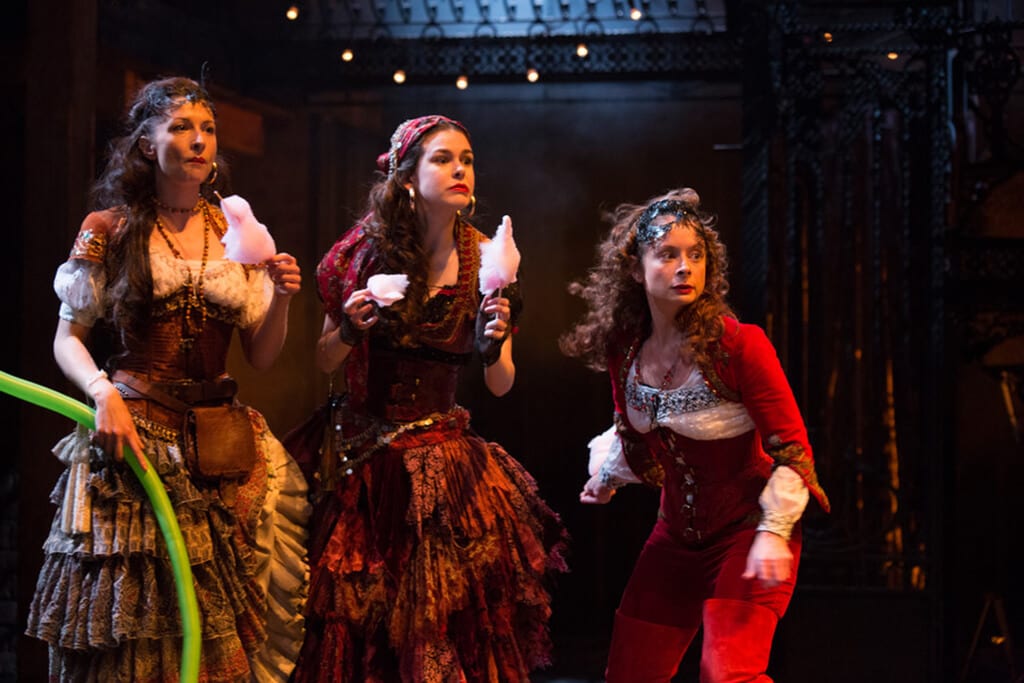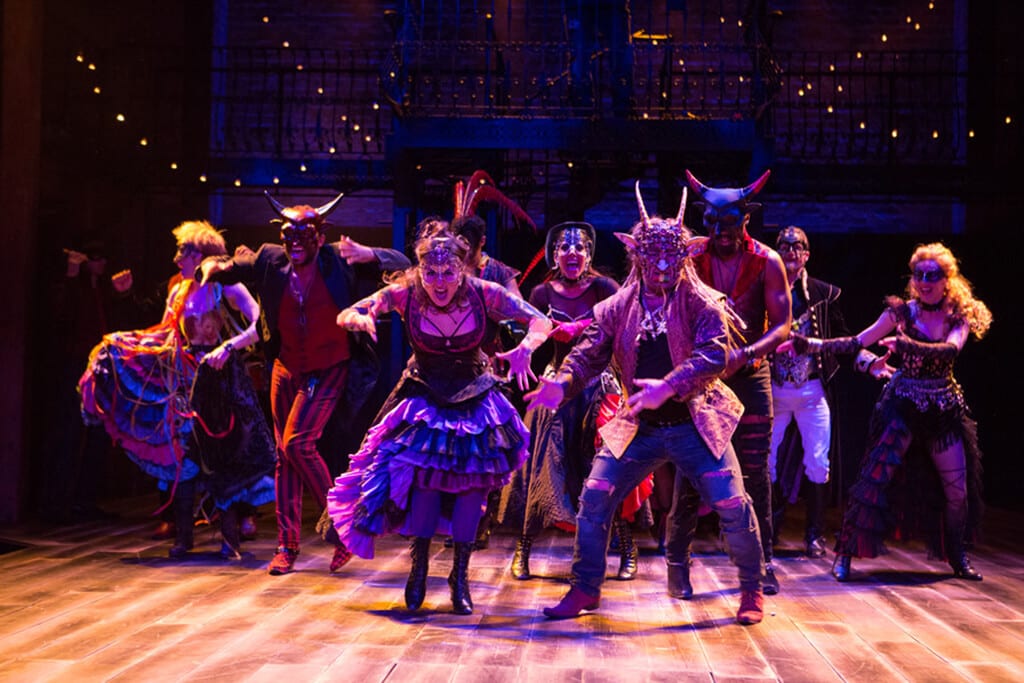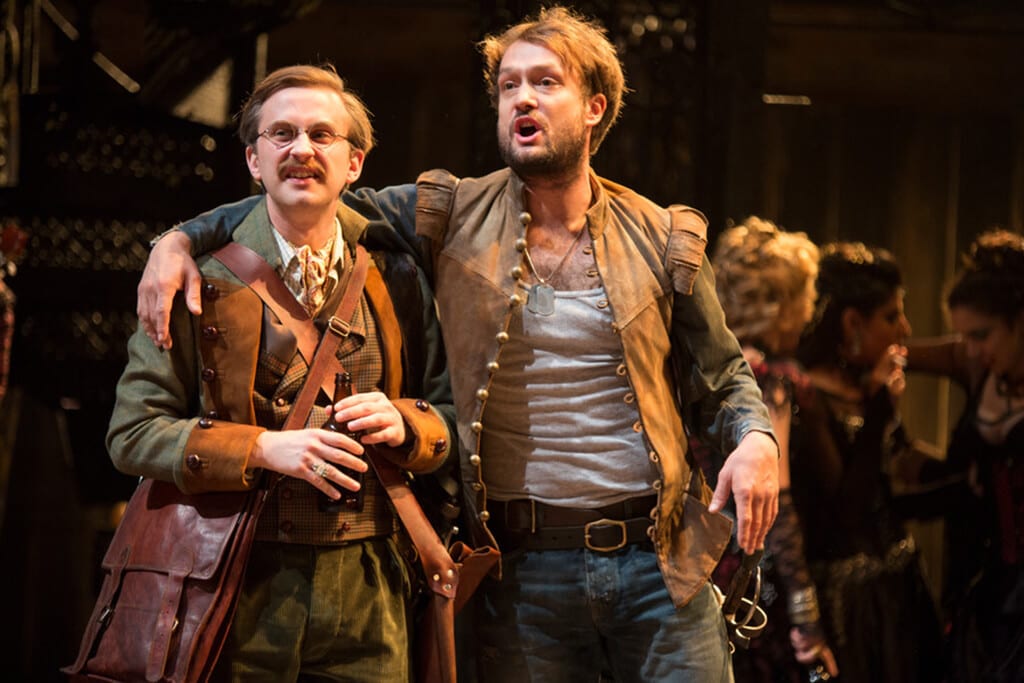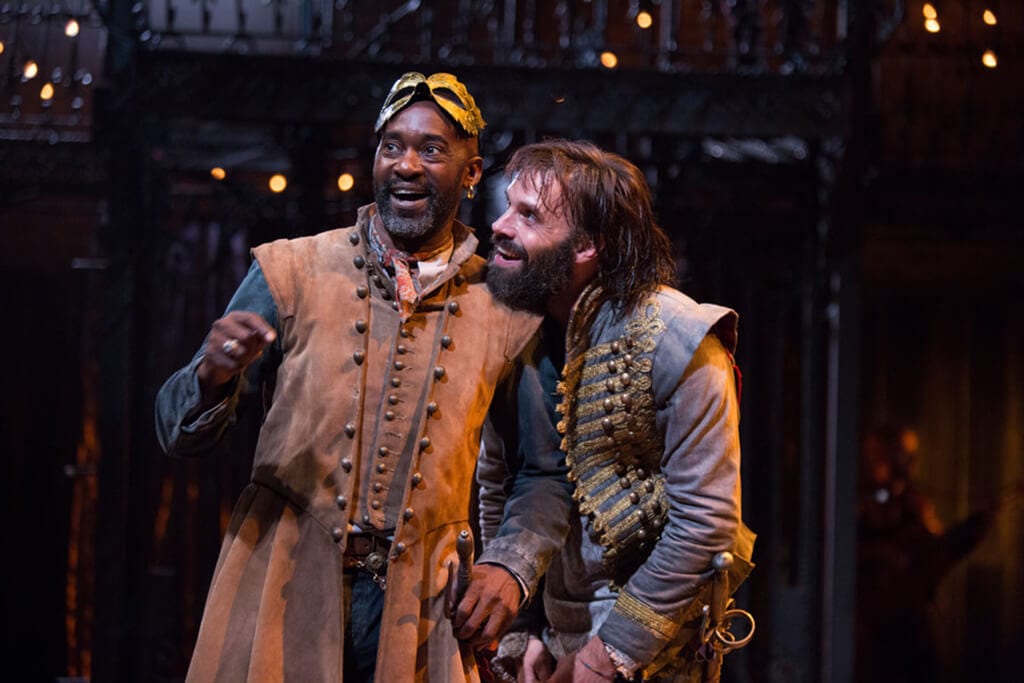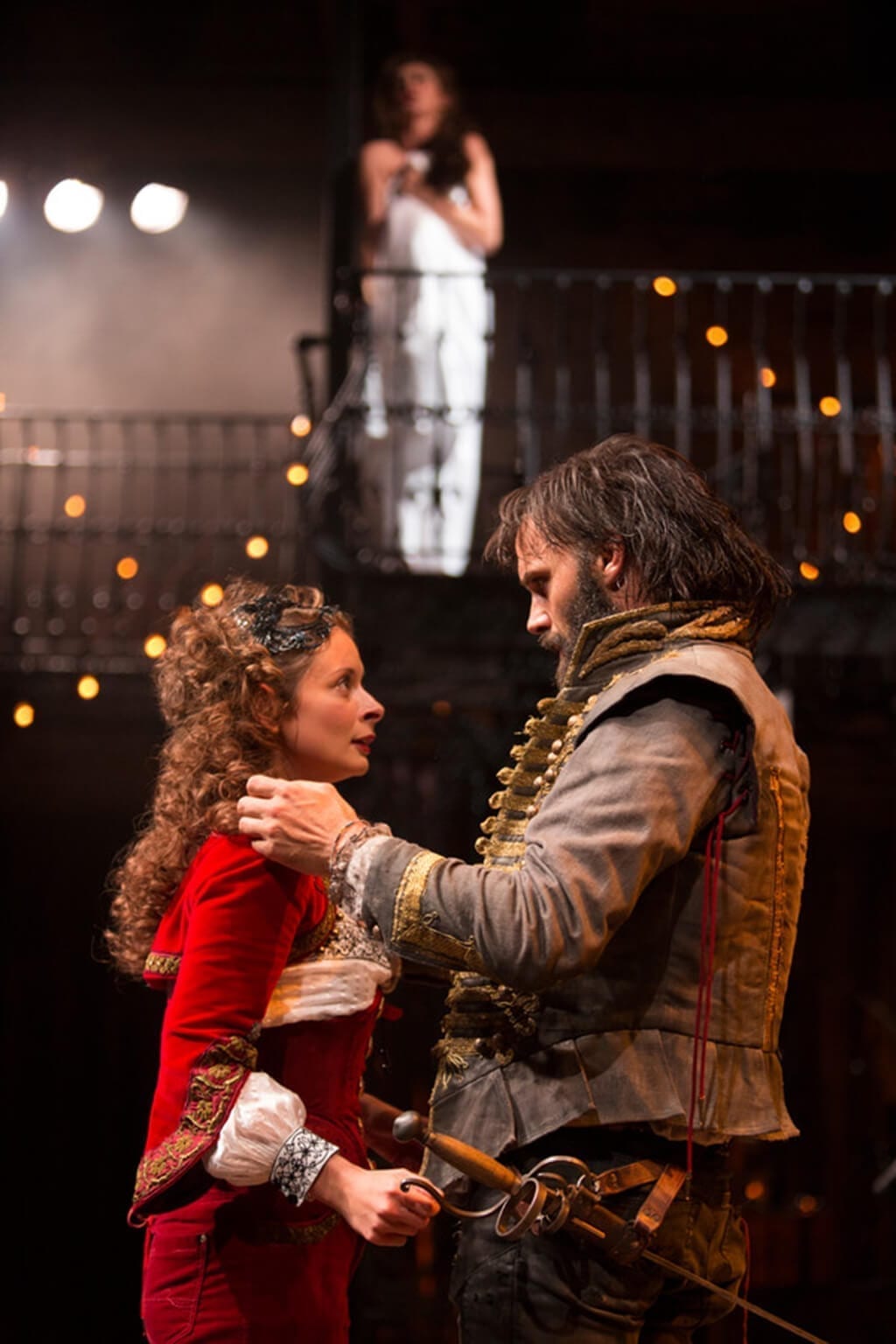This is quite simply a brilliant production of a brilliant play; and if there were only one thing you could get to see at Stratford this year, so far I would say this would be the one to opt for. The play itself is a masterpiece; and director of this version, Loveday Ingram, shows a great imaginative affinity for every aspect of the script and its context.
Aphra Behn was famously the first woman in her era in Britain to make her living from her pen; and working in the period of the Restoration she contributed 19 plays to the revived, revitalised and revolutionised theatre. A writer of prose and poetry as well, like Christopher Marlowe, Aphra Behn even had a period as a spy for the king. In her own day she was renowned; and she has been unjustly neglected ever since. This play, from 1677, was one of the favourites of King Charles II; and Aphra Behn’s imagining of the lives of banished cavaliers during the period of Cromwell’s Republic (when Charles himself was an impoverished exile in France) and of the women they find during a Mardi Gras in Naples works on many levels: as an hilarious comedy, a satiric character study, a raunchy spectacle, an early feminist look at the plight of women in society and a witty, brilliantly written text.
Ingram keeps all these themes juggling successfully throughout a play in which there is never a dull moment. Her pacing is completely convincing and she directs with a clarity that keeps all the plots and subplots illuminated for the audience. This clarity also applies to the way the actors read their lines.
All the actors and musicians in the large company contribute significantly and with great aplomb to an event that is both merry and thought-provoking. Patrick Robinson’s bluff, good Belvile is a moral centre for the proceedings. Joseph Millson, energetic, rakish, Errol Flynn-like is the captivating, irritating Willmore. Faye Castelow’s Hellena is a suitable foil for him as the reluctant nun; and Millson and Castelow manage to conjure echoes of Beatrice and Benedick in their sparring, wooing and wedding. There is wonderful playing with the convention of women disguised as men in this era when for the first time the women were actually played by women and not boys. Alexandra Gilbreath is superb as the famous courtesan, Angellica Bianca, and not only believable but heartbreaking in her journey from extremely successful sexual entrepreneur to a woman nearly mad with obsessive love for Willmore. I was also particularly struck by Gyuri Sarossy as Don Pedro; Frances McNamee as Florinda; and the perfectly pitched Blunt, a weedy and wealthy Englishman, played by Leander Deeny. The design by Lez Brotherston is a real asset and composer Grant Olding has done a memorable job not only for the carnival songs and activities that burst about the stage regularly but for the use of underscoring in several dramatic and pointed moments

